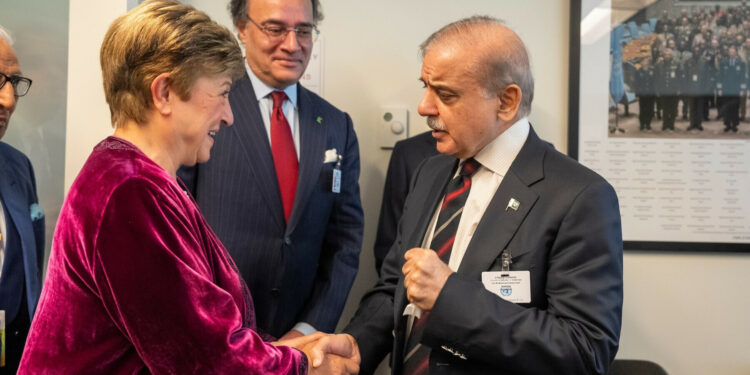Pakistan wins more financing assurances from China, UAE, Saudi: IMF official as Prime Minister is on an official visit to New York.
The State Bank of Pakistan (SBP) announced on Friday that it had received a $1 billion installment from the International Monetary Fund (IMF) under a new agreement, following the government’s successful efforts to secure additional financial commitments from China, Saudi Arabia, and the UAE. These commitments extend beyond the $12 billion in bilateral loan rollovers owed to these nations.
In a statement, the SBP confirmed that it received the first tranche of special drawing rights (SDRs) worth 760 million from the IMF after the Board approved a 37-month, $7 billion Extended Fund Facility. The inflow will be reflected in SBP liquid reserves starting October 3. SDRs, created by the IMF in 1969, are international reserve assets that supplement the existing reserves of member countries.
IMF Pakistan Mission Chief Nathan Porter, while not revealing exact figures, said that the financing commitments from the UAE, China, and Saudi Arabia would be in addition to the debt rollover. He emphasized that the three nations provided substantial financial assurances as part of the new program.
On Wednesday, the IMF’s Executive Board approved the $7 billion, 37-month loan program for Pakistan, aimed at promoting sound policies and reforms to enhance macroeconomic stability. The approval released a $1 billion disbursement, marking the 23rd IMF bailout for Pakistan since 1958.
Porter highlighted Pakistan’s “remarkable” economic recovery since mid-2023, with significant reductions in inflation, stable exchange rates, and more than double the foreign reserves. He noted that these improvements were the result of sound policies but stressed the need to maintain consistency in monetary, fiscal, and exchange rate policies to foster sustained growth. Porter also called for increased tax revenue and better public spending.
In 2023, Pakistan recorded its first primary budget surplus in two decades, and the IMF program aims to grow this to 2% of GDP, partly through reforms in under-taxed sectors like retail. The next review of the program will likely occur in March or April 2025, based on 2024’s performance.
Additionally, IMF Managing Director Kristalina Georgieva described her meeting with Prime Minister Shehbaz Sharif as “very productive,” discussing in a post on X that how the new IMF-supported program would aid Pakistan’s recovery, reduce inflation, promote tax fairness, and drive inclusive growth and job creation.
Related Posts

















